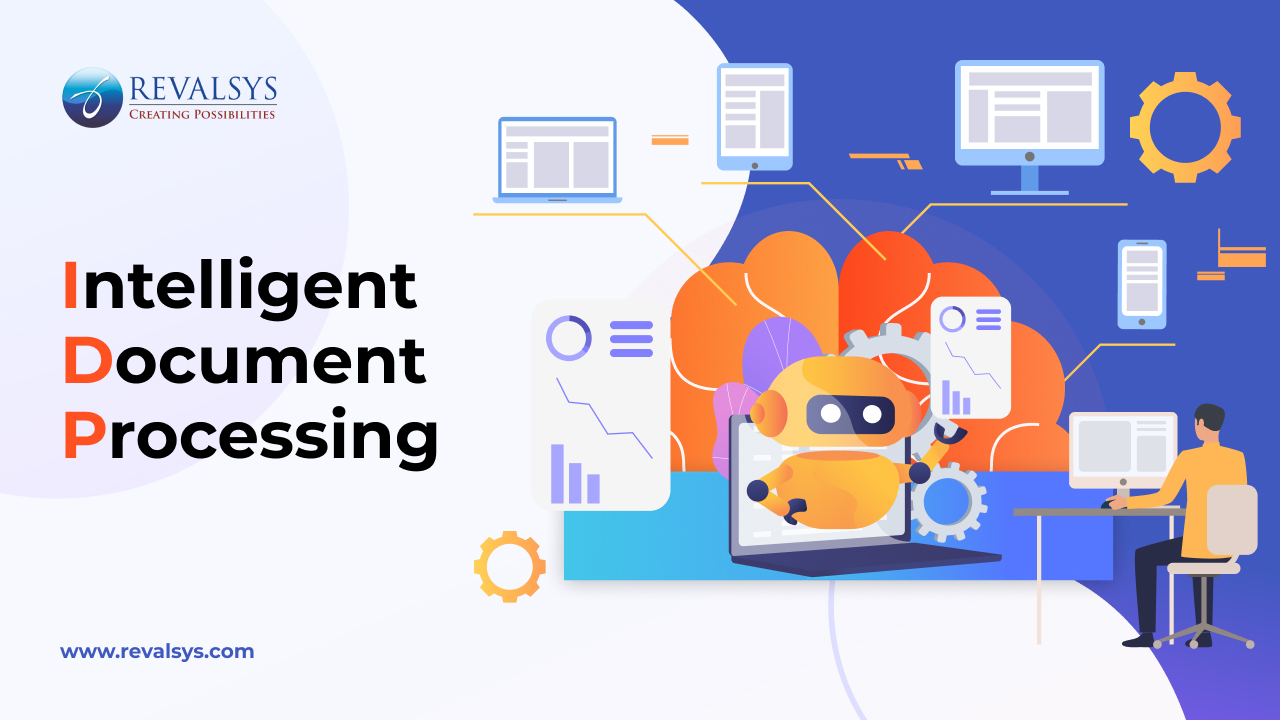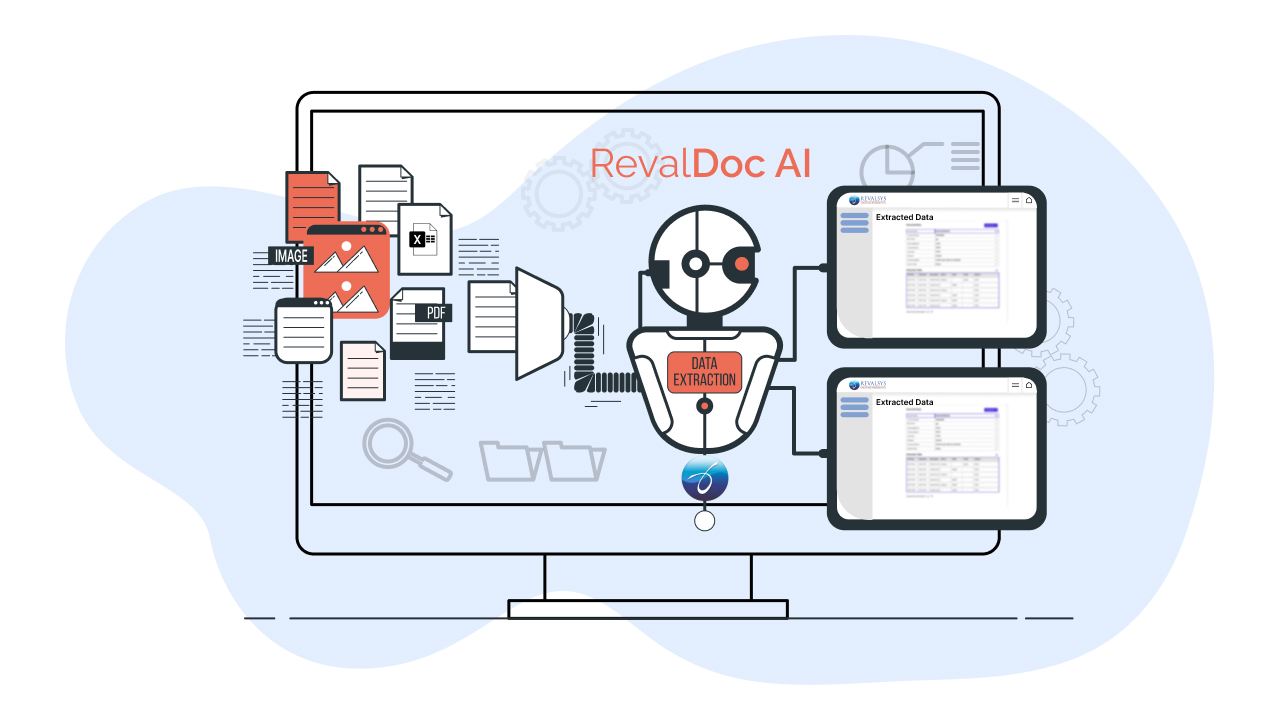
Intelligent Document Processing (IDP): Transforming Unstructured Data into Actionable Insights
Organizations today are overwhelmed with data, making it difficult to distinguish what’s valuable from what’s just clutter. Manually sorting through massive amounts of documents to find important information is time-consuming and labor-intensive. This is where Intelligent Document Processing (IDP) comes into play. Using advanced technologies like AI and machine learning, IDP automates the extraction and processing of unstructured data, enabling businesses to quickly uncover meaningful insights. By streamlining these tasks, IDP not only saves time and reduces costs but also makes data more manageable and accessible.
In an age where data-driven decision-making is key to success, automation has become essential for improving operational efficiency. At the forefront of this movement is IDP, which revolutionizes how organizations handle vast amounts of structured and unstructured data. By leveraging AI, IDP delivers faster, more accurate results, transforming the way businesses process information and allowing them to make better, data-backed decisions with ease.
What is Intelligent Document Processing (IDP)?
IDP is an advanced form of automation that enables machines to read, understand, and process data from documents like invoices, contracts, and emails. Unlike traditional document processing systems, Intelligent Document Processing is not limited to structured formats (such as forms or tables). It can intelligently extract data from unstructured documents, including scanned PDFs, images, and handwritten forms, and convert them into structured data that can be analyzed and used within other systems.
Benefits of Intelligent Document Processing
 The benefits of adopting Intelligent Document Processing solutions are immense, and they stretch across various industries:
The benefits of adopting Intelligent Document Processing solutions are immense, and they stretch across various industries:
1. Increased Efficiency: IDP automates the extraction process, significantly reducing manual intervention and speeding up data processing.
2. Enhanced Accuracy: With machine learning algorithms, IDP improves the accuracy of data extraction over time, reducing human errors.
3. Cost Savings: By automating document processing, businesses can reduce operational costs and free up employees for higher-value tasks.
4. Scalability: IDP systems can easily handle large volumes of documents, making them ideal for growing businesses.
5. Compliance and Security: Automated document handling ensures that sensitive data is processed securely and in compliance with industry standards.
How Does IDP Extract Data from Unstructured Documents?
 RevalDoc AI – Intelligent Document Processing (IDP) utilizes various technologies to extract data from unstructured documents and convert it into a structured format. Here’s how it works:
RevalDoc AI – Intelligent Document Processing (IDP) utilizes various technologies to extract data from unstructured documents and convert it into a structured format. Here’s how it works:
1. Document Ingestion: IDP first ingests documents from various sources like emails, cloud storage, or scanners. It supports multiple formats including PDFs, Word documents, images, and even handwritten notes.
2. Pre-processing: Technologies such as AI, ML & Optical Character Recognition (OCR) are employed to digitize the text from scanned documents and images, making them machine-readable.
3. Data Extraction: Natural Language Processing (NLP) and machine learning algorithms are used to identify key information, such as names, dates, amounts, or any custom field defined by the user. It can intelligently discern which parts of the document are relevant.
4. Data Structuring: Once the data is extracted, IDP converts it into a structured format like JSON, XML, or a table that can be seamlessly integrated into databases or other software.
Supported File Types for Intelligent Document Processing (IDP)
 IDP solutions can handle a wide array of file types, including but not limited to:
IDP solutions can handle a wide array of file types, including but not limited to:
1. Scanned PDFs: IDP can process scanned PDF documents, which are commonly used for forms, contracts, and reports. By extracting text and data from these files, Intelligent Document Processing enables organizations to digitize and analyze information that would otherwise remain trapped in paper.
2. Handwritten Notes: IDP solutions are equipped with advanced optical character recognition (OCR) capabilities to interpret handwritten text. This is particularly useful for processing notes from meetings, surveys, or customer feedback, converting them into structured data for easier analysis.
3. Images (JPEG, PNG): IDP can analyze image files such as JPEGs and PNGs. This allows businesses to extract data from images of documents, receipts, or other visual content, making it easier to incorporate valuable information from various sources into their workflows.
4. Word Documents: With the ability to process Word documents, IDP can automatically extract text and data from reports, proposals, and other written materials. This feature helps organizations streamline the review process and quickly access important information.
5. Excel Spreadsheets: IDP can handle Excel files, allowing it to extract data from structured spreadsheets. This is beneficial for organizations that rely on data analysis and reporting, as IDP can facilitate the integration of spreadsheet data into broader business processes.
6. Emails: IDP can process email content, extracting relevant information from both the body and attachments. This is essential for managing customer inquiries, processing orders, or handling documentation that arrives via email, ensuring important data is captured and organized efficiently.
This versatility makes IDP an ideal solution for businesses dealing with various types of documents.
Key Technologies in Intelligent Document Processing (IDP)
 Intelligent Document Processing is powered by several cutting-edge technologies:
Intelligent Document Processing is powered by several cutting-edge technologies:
1. Optical Character Recognition (OCR): Converts text in scanned documents or images into machine-readable formats.
2. Natural Language Processing (NLP): Allows machines to comprehend and interpret human language.
3. Machine Learning (ML): Learns from each processed document to improve extraction accuracy.
4. Robotic Process Automation (RPA): Helps automate repetitive tasks by integrating IDP into larger workflow systems.
5. Deep Learning: Further enhances data extraction from highly complex, unstructured documents.
6. Artificial Intelligence (AI): AI encompasses various technologies, including OCR, NLP, and ML, to create intelligent systems capable of mimicking human decision-making. In IDP, AI improves data processing by enabling the system to understand context, make inferences, and adapt to new document types, resulting in smarter, more efficient workflows.
Use Cases Across Industries
 Intelligent Document Processing (IDP) has transformative applications across various industries:
Intelligent Document Processing (IDP) has transformative applications across various industries:
Banking and Finance: Automates loan applications, KYC documents, and financial reports. For example, a major bank implemented IDP to streamline its loan approval process, reducing the time taken to verify applicant information from days to hours, enhancing customer satisfaction and operational efficiency.
Healthcare: In healthcare, IDP extracts data from medical forms, patient records, and insurance claims. A prominent hospital network used IDP to digitize patient intake forms, significantly speeding up patient registration and improving data accuracy, which in turn facilitated better patient care.
Government Sector: In the government sector, IDP can be used to process a wide range of documents, including tax filings, application forms, and public records. For example, a regional tax authority implemented IDP to automate the processing of tax returns, significantly reducing the time taken to review submissions and improving compliance rates. Additionally, IDP can help manage public records requests, ensuring timely access to information while reducing the administrative burden on staff.
Legal: IDP is used to process contracts and case files in the legal sector. A law firm adopted IDP to automate the review of contracts, allowing attorneys to quickly extract key clauses and terms. This reduced the time spent on document analysis and improved the firm’s ability to meet tight deadlines.
Insurance: In the insurance industry, IDP speeds up claims processing by extracting relevant data from forms. For instance, a leading insurance company implemented IDP to automate the extraction of information from claims submissions, cutting down processing time from several days to mere hours, which enhanced customer satisfaction.
Manufacturing: IDP streamlines the processing of invoices and purchase orders in manufacturing. A large manufacturing company utilized IDP to automate invoice processing, allowing it to quickly verify and approve payments. This not only improved cash flow management but also reduced errors associated with manual entry.
E-commerce: In the e-commerce industry, IDP automates the extraction of order details, receipts, and customer information from emails and documents. For example, an online retailer implemented IDP to handle order confirmations and customer inquiries, significantly reducing response times and improving overall customer service.
Export-Import Industries: IDP plays a crucial role in managing shipping documents, customs declarations, and invoices in the export-import sector. A logistics company adopted IDP to streamline the processing of shipping paperwork, allowing for quicker customs clearance and reducing delays in the supply chain. This improved overall operational efficiency and enhanced customer satisfaction.
Conclusion
Intelligent Document Processing is revolutionizing how businesses manage their document workflows. By converting unstructured data into structured insights, IDP enables organizations to operate more efficiently, reduce costs, and scale their operations effortlessly. As industries continue to digitize, the role of IDP will only grow in importance, offering a competitive advantage to those who adopt it early.
